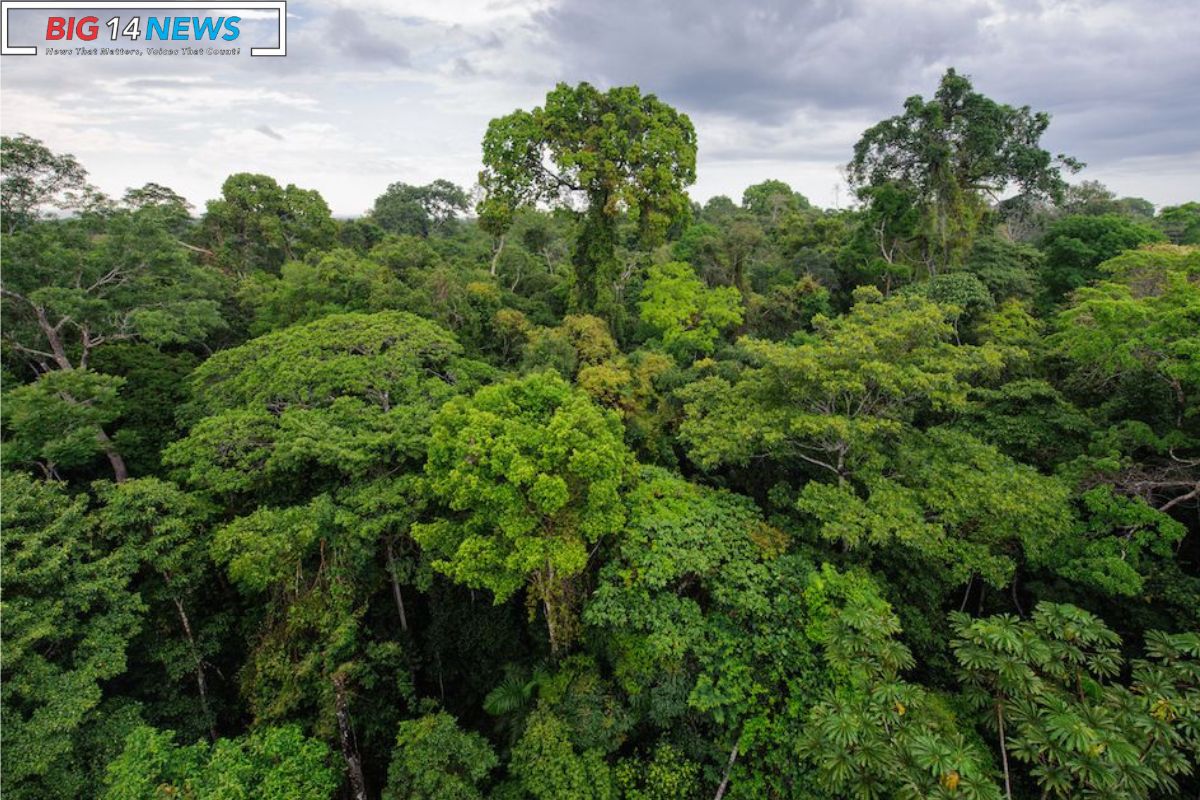Tropical Forests Threatened by Overheated Photosynthesis: Climate and biodiversity depend on tropical forests. A new study suggests that overheated leaves may stop photosynthesis. Researchers from the US, UK, Brazil, France, and Australia found that leaf temperatures above 116 degrees Fahrenheit cause the crucial process to fail. At the rate of global warming, many leaves may soon reach this critical level, killing many trees.
116 degrees may sound high, but leaves may get much hotter than the surrounding air. The study found that 0.01% of leaves are warmer than this limit, making photosynthesis difficult. If global temperatures rise, this percentage may increase. Woods can withstand a 7.2-degree Fahrenheit temperature rise before a substantial alteration. If the temperature climbs above this, 1.4% of leaves could be warmer than the threshold temperature. This implies many leaves will fall off, which could kill trees.
Photosynthesis enables life on Earth. Plants produce oxygen and energy from light, water, and atmospheric carbon dioxide. This mechanism produces most of Earth’s oxygen and underpins its vast food web. Thus, any alteration to this mechanism affects ecosystems and their inhabitants.


Tropical woods are more than lush vegetation. They inhabit South America and Southeast Asia. They hold life together in numerous ways. Half of the land species dwell in these woodlands. By absorbing massive volumes of carbon dioxide, they assist in maintaining Earth’s delicate temperature equilibrium.The study’s findings have many implications and demonstrate the urgency of addressing global warming. When these forests reach their temperature tipping point, biodiversity and Earth’s climate control systems are at risk.These findings should stir up a world suffering from environmental challenges. We must move fast because tropical forests and the Earth are in horrible shape. Failure of photosynthesis is a global emergency, not only for tropical forests. Conservation and protection of these woods must be increased to combat climate change. This will assist these woodlands‘ various species to survive and thrive.
Our Reader’s Queries
What are tropical forests threatened by?
Tropical forest biodiversity is declining due to deforestation, fragmentation, over-exploitation, invasive species, and climate change. These factors are the main culprits behind the loss of diverse plant and animal species in these forests.
Could parts of the tropical rainforest get too hot for photosynthesis?
A recent study has cautioned that climate change may be slowly making the tropical rainforests too warm for photosynthesis to take place, potentially leading to their eventual collapse.
What is the photosynthesis in the tropical rainforest?
The lush tropical rainforest in Borneo is home to towering trees that are producers. Using photosynthesis, they transform sunlight and carbon dioxide into vital nutrients. These plants play a key role in the food chain, supporting the entire ecosystem.
How are tropical rainforests threatened by global warming?
In the future, the Amazon will experience higher temperatures and different rainfall due to global climate change and increased deforestation. These changes will impact the forests, water supply, plants and animals, farming, and people’s well-being in the area.

